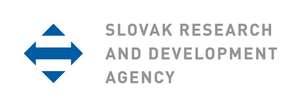Our research has three main aims
AIM 1 is to study the European Commission's (EC) position towards integration in external carbon security and how that position was affected by the ongoing energy crisis. Although the EC was supportive of developing a common EU approach to external carbon security after both the 2006 and 2009 gas crises, presented several strategic documents on this topic over the years, and even included some aspects of this issue in the Energy Union, it was ultimately unable to persuade opposing member states to transfer their competences in this area to the EU. The Lisbon Treaty introduced energy policy into the EU's primary law in Article 194, but explicitly kept several competences in member states' hands. For example, member states can decide from where and under what conditions they receive their natural gas (and any other energy sources) - so several members still import natural gas from the Russian Federation. Joint purchase of gas was agreed by member states, however, this has only minimal impact on overall gas sector. This project will examine whether the EC's response to the current crisis differs from its previous approach to external carbon security. While the EC previously focused on developing new policies or deepening existing ones by utilising windows of opportunity provided by crises, different patterns have recently emerged as the EC pushes member states to commit to particular goals.
AIM 2 is to examine the preferences of EU member states: both those that support integration in external carbon security and those that oppose it. Members that support deepening integration in external carbon security see the EU as a more suitable level for dealing with external suppliers of high carbon sources, since the common position is much stronger than the positions of individual member countries (especially the smaller ones). Most often, the deepening of integration in this area is viewed as a response to security challenges and perceived vulnerability.However, member states in support of deepening integration in external carbon security have so far been unsuccessful in pursuing their preferences in this area.
The project studies two cases: Poland is one of the countries that strongly supported such a development because of long-term tensions with Russian Federation in both the energy and foreign policy area. While it was not successful at pursing this policy at the EU level, the country developed its own response in 2014 in the form of a liquified natural gas (LNG) terminal. Similarly, the Baltic States have also been supporters of deepening integration in external carbon security, mostly due to their experience with supply interruptions from Russia. Efforts to solve this problem by developing a shared LNG terminal have been unsuccessful as the Baltic States were unable to agree on a common solution that would grant them access to EU funding. Ultimately, Lithuania built its own terminal using own financing.
On the other hand, several EU member states have not been in favour of developing a common approach to external carbon security. Since unanimity among members is required to deepen integration in this area, countries that are unwilling to move in this direction do not need to pursue their preferences - it is enough to not actively support the deepening of integration. They can thus impact European integration in this policy area to a high degree and act as veto players. We assume that member states do not want integration in this area, because they: A) consider having competences regarding the energy mix under their own control advantageous (i.e., domestic policy reasons); B)have their own foreign policy interests that contradict a common EU approach in the energy area; or C) favour a fast-track approach to decarbonisation that focuses on minimising the transition period towards full decarbonisation.This project studies these perspectives on member states' opposition to integration by examining three case studies:1) Austria's position on the deepening of European integration in external carbon security, viewed through the lens of national control over the energy mix; 2) the development of the German position in connection to Nord Stream 1 and2 pipelines before and after their shutdown due to hostile activity; and 3) the policy options of the countries that reject the idea of natural gas as a bridging fuel and view it through the prism of the 'lock-in concept'.
AIM 3 is to develop a new theory of integration in energy policy by building on the knowledge gained in the course of the project. Since the EC and member states are the key actors in the deepening of integration in energy policy, their mutual relations determine its direction. This is reflected in the discussion pitting the supranationalists against the intergovernmentalists. The EU has recently been undergoing a lot of changes, to which both the EC and member states are responding. The whole EU is in flux as it tries to find solutions to the ongoing 'polycrisis', with the EC proposing new solutions that include increased supranationalism, which is contested by some members. Major past crises changed the dynamics between these main EU actors and inspired the development of new theoretical approaches. Based on empirical findings about the ECʼs changing role in EU policy making and the reactions(support/opposition) of member states, this project will propose a new model of integration in the energy policy area and thus contribute to the ongoing theoretical discussion about European integration.


